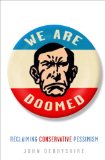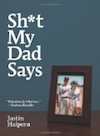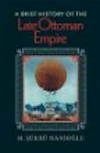books
May 7, 2010 14:23:22.000
If I had to categorize him, I'd say that he falls on the libertarian-ish end of conservatism. I tend to fall in that direction, so there's a lot in the book I agree with, but - your mileage may vary, of course. It's a short read, so you won't need to invest a ton of time on it. If nothing else, have a look at his section on education. Based on my daughter's tour through the local school system, I'm not quite as pessimistic as he is, but it's close. You want to get depressed? Next time your teenage kid has a few friends around, pull a bill out of your wallet (any bill, including a $1), and ask the lot of them to identify whoever is on it. If you haven't tried this before, prepare to be astonished.
Anyway, it is a polemic - if you don't agree with the author's viewpoint, you may well be infuriated by the book. It's not an angry book though, so if you bring an open mind to it, you'll at least see where people you don't necessarily agree with are coming from. In that light, I recommend the book.
Technorati Tags:
politics, history
posted by James Robertson
books
April 5, 2010 12:38:23.695
I just finished two books on the civil war - one on Sheridan (more properly, on him and his top commanders) , and the other on the war in the Chesapeake Bay region
, and the other on the war in the Chesapeake Bay region . The Sheridan book covered the last year of the war - more or less, the Shenandoah campaign and the wrapup of the siege of Petersburg. Sheridan was an interesting character, and he ended up having a lasting impact on the army - his innnovations with cavalry warfare make me wonder - he would have been an interesting guy to pair with Patton during WWII.
. The Sheridan book covered the last year of the war - more or less, the Shenandoah campaign and the wrapup of the siege of Petersburg. Sheridan was an interesting character, and he ended up having a lasting impact on the army - his innnovations with cavalry warfare make me wonder - he would have been an interesting guy to pair with Patton during WWII.
Another thing that comes clearly through this book, at least for me - if you're going to fight a war, fight the war. No half measures, no "proportional response" nonsense - take the war to the enemy and make them regret the decision to go to war in the first place. I often wonder how differently many modern American wars might have gone had Sheridan, Sherman, and Grant been around to run them.
Anyway - if you're interested in this period of history, it's an interesting book, and short. A good companion to a biography of Sheridan.
The second book, about the war on the riverine Chesapeake, was fascinating. It really brought home to me how messy the border region war was between 1861-1865. All along the Chesapeake, the skirmishing, smuggling, and guerilla warfare went on non-stop until the very end of the war, and it was often a nasty business. Not that war is ever not nasty, but it was smaller scale and more personal - given the divided loyalties of the region, there was a lot of the stereotypical "brother vs. brother" thing going on.
If you want to read something that gives you a view of the war away from the common "Lee vs. a parade of Union commanders" thing, this is a good one to look at.
Technorati Tags:
history, civil+war
posted by James Robertson
books
March 23, 2010 13:05:31.505
posted by James Robertson
books
March 22, 2010 6:31:35.110
Last week I read a short book by Johannes Bhakdi - "Web 3.0 - User Generated Business". I was skeptical of the book when I first opened it - it's short, and lots of the book is done in Powerpoint stick-man style presentation graphics. However, I was pleasantly surprised by it. While it is a "campaign book" for Johannes' business, it also makes some good points about how you should establish your brand (corporate or personal).
While services like YouTube, Facebook (et. al.) can be critical, you should always point those back to a central "home" for your content. A decade ago that was harder to do - now, with services like Slicehost (the place I host this blog), it's far easier and more affordable. That's related to one of the key points Johannes makes in the book - he believes (and I agree with him) that it's still too hard for the average web user to set up shop and start pushing out content - on two levels:
- Setting up your own site - one that can manage audio, video, and text, is not only hard, but, in the case of "heavier" content, still expensive
- Getting paid for content production is next to impossible
The latter topic is one that Johannes spends a fair amount of time on. He's certainly following his own advice; the book is self published, and his outfit (klatcher.com) is in the business of providing the sorts of tools he's advocating. I have no idea how well those tools work; obviously, I'm living in the "roll your own" reality here :) )
There are a few downsides - self publishing doesn't obviate the need for an editor, and this book needs a once over. There are some distracting spelling issues (personally, I hate seeing "loose" when "lose" is called for). I was way more distracted by the construction "The Web 3.0" than I should have been, but I just don't like how that flows.
Those are nits, but they were distracting. It's not a book you'll spen a lot of time reading, but I think it ties some useful ideas about how to proceed with a web-based business together. If Johannes has the book re-edited, I'd recommend it.
Technorati Tags:
branding, business
posted by James Robertson
books
March 13, 2010 1:40:55.271
I plowed through a few more links for the books page I put up; there's still a whole bunch more to go through though :)

posted by James Robertson
books
March 11, 2010 15:21:08.481
I need to go back further in my blog archives, but I've put together a partial list of the books I've reviewed - either here or on my Cincom blog. Check it out :)
posted by James Robertson
books
March 11, 2010 12:03:22.748
I just finished reading two books - Robert Conroy's Red Inferno: 1945: , and Carl Berryman's 2013: World War III
, and Carl Berryman's 2013: World War III . Of the two, the alternate reality book - Conroy's positing of a few small changes that led to an immediate war with the USSR in 1945, before the one with Germany was really done, was way, way more plausible - not to mention better written.
. Of the two, the alternate reality book - Conroy's positing of a few small changes that led to an immediate war with the USSR in 1945, before the one with Germany was really done, was way, way more plausible - not to mention better written.
The Berryman book suffered on two counts - first, if it was edited at all, I'd fire the editor. Second, the premise of a massive Chinese "lebensraum" style war is something I just don't buy, based on the historical behavior of the "Middle Kingdom". Had the text not suffered from such bad editing - spelling issues, poor grammar, you name it - it might have been an enjoyable yarn. As it is, it reads more like an early draft that's in need of major work. I just can't recommend it.
Conroy's book, on the other hand, was a great read, and I found the premise entirely plausible - Truman sends a small force towards Berlin to ensure that the western allies get their promised share of Berlin, Stalin goes paranoid, and boom - Zhukov keeps going west. It's a fast read, and I think Conroy's writing is getting better. I've read some of his earlier stuff, and I can say that I look forward to whatever he does next.
Technorati Tags:
alternate+history
posted by James Robertson
books
March 9, 2010 7:02:28.392
posted by James Robertson
books
February 22, 2010 6:24:55.537
I like the idea of textbooks that can be updated:
Professors will be able to reorganize or delete chapters; upload course syllabuses, notes, videos, pictures and graphs; and perhaps most notably, rewrite or delete individual paragraphs, equations or illustrations.
However, that's not really the reason this idea is being pushed:
The modifiable e-book editions will be much cheaper than traditional print textbooks. "Psychology," for example, which has a list price of $134.29 (available on Barnes & Noble's Web site for $122.73), will sell for $48.76 in the DynamicBooks version.
That price cut is intended to gut the market for used textbooks (just like game publishers would like to gut that trade in their space). At least for textbooks, it's driving prices down.
Technorati Tags:
textbooks, e-books
posted by James Robertson
books
February 20, 2010 23:34:38.765
The main complaint I have with the story is the prominent place that Suarez assigns mainstream (especially cable tv) news sources. There's the "Darknet" set up by the deceased protagonist, and then there's the media - it's as if the entire internet that we know now doesn't exist. That's a pretty big hole to ignore, but the story is entertaining if you can get beyond that. I'd love to see the autheor asked about that in an interview though :)
Technorati Tags:
freedom book
posted by James Robertson












